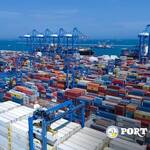Ghana has to choose between positioning itself as a trade hub or as an industrial powerhouse.
Each path offers distinct opportunities, challenges, and requires specific strategies and investments.
The Ministry of Trade and Industry must spearhead a strategic decision-making process that clearly defines Ghana’s long-term economic identity.
Whether as a trade hub or an industrialized nation, the implications of this choice will ripple across every sector of the economy, influencing everything from infrastructure development to monetary policy.
Trade hub option
Positioning Ghana as a trade hub, particularly in the context of the African Continental Free Trade Area (AfCFTA), presents a compelling opportunity.
This model would involve significant investments in infrastructure—ports, airports, and logistics systems—to facilitate the seamless movement of goods.
The potential benefits are vast: increased foreign direct investment, job creation, and enhanced connectivity with global markets.
However, this approach is not without its risks.
A trade-focused economy could lead to a scenario where Ghana becomes overly reliant on external factors, such as global trade dynamics and currency fluctuations.
Additionally, the possibility of imported inflation, driven by the need to continually purchase foreign goods, could exacerbate existing economic challenges.
Industrialization option
On the other hand, pursuing industrialization would necessitate a different set of strategies.
Ghana would need to invest heavily in manufacturing capabilities, technology, and workforce development.
This path could enable the country to produce goods domestically, reduce import dependency, and create value-added products for export.
This route comes with its own set of challenges, particularly the persistent demand for foreign currency and the inflationary pressures that could arise from importing raw materials and capital goods.
Moreover, the industrialization path would require robust support from both the public and private sectors.
Policies aimed at incentivizing local production, protecting emerging industries, and fostering innovation would be crucial.
Additionally, addressing the high cost of borrowing and stabilizing the national currency would be essential to create a conducive environment for industrial growth.
The role of capital markets
Regardless of the path Ghana chooses, the role of capital markets in driving economic growth cannot be overstated.
Capital markets are essential tools for national development, enabling businesses to raise funds, attract investments, and generate returns for investors.
For Ghana to unlock the full potential of its capital markets there must be a concerted effort to implement strategic policies that encourage participation and growth.
This requires not only the development of a supportive regulatory framework but also the creation of an economic environment conducive to business expansion.
With interest rates currently at prohibitive levels and the cedi’s depreciation making it difficult for companies to raise capital, urgent policy interventions are needed.
The government must prioritize macroeconomic stability, lower interest rates, and implement measures to stabilize the currency.
Ghana’s economic future hinges on the decisions made today.
The country must decide whether it will become a trade hub or pursue industrialization, and then commit to the necessary policies and investments to support that choice.
Both paths offer unique opportunities, but they also require careful planning, strategic investments, and unwavering commitment from all stakeholders.
The government, private sector, and civil society must work together to create a coherent economic strategy that maximizes Ghana’s strengths and addresses its challenges.
Only through a clear and decisive approach can Ghana achieve sustainable growth, improve the livelihoods of its citizens, and solidify its place in the global economy.
- The future of business is digital, green, inclusive-Mahama - 20 April 2025
- Have we reaped the whirlwind? - 19 April 2025
- Fighting cocaine with the cross - 18 April 2025




